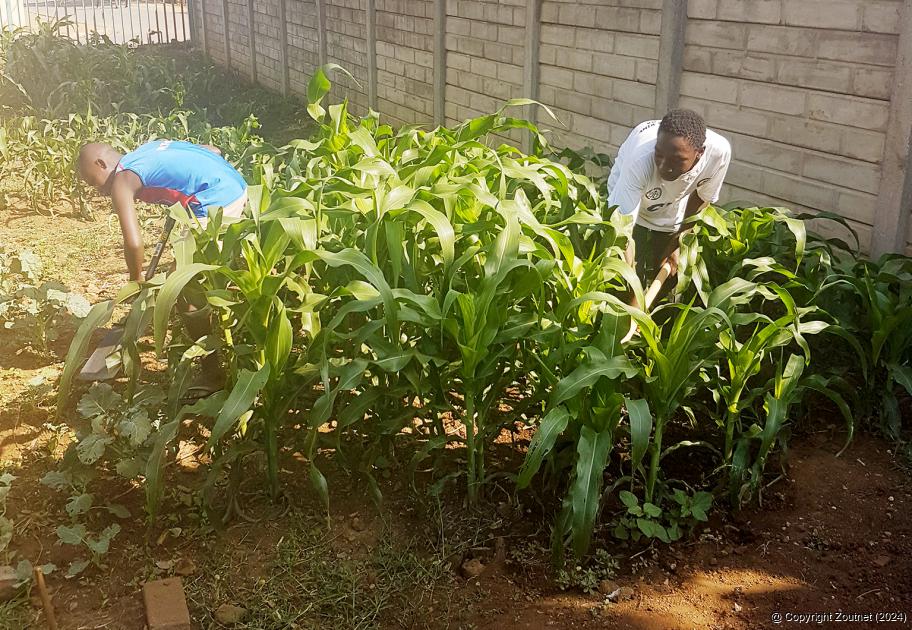To pass matric is no easy feat, but it is even more of a challenge if you do not have a stable home and you live in a child-care facility. Six matriculants from Tshitandani Child Care Centre (TCCF) in Tshikota achieved the almost impossible last year by not only passing the exam, but also notching up some distinctions.
Five of the six Tshitandani students passed the 2017 exams with university exemption. One of them, Emmanuel Tambire, collected two distinctions in the process. The children’s home has already managed to find work for three of the young school-leavers.
The manager of Tshitandani, Ms Nadine Smal, is very proud of what they have been able to achieve at the home. This is the most matriculants in the history of the children’s home who have managed to pass matric. “In 2016, we had two matriculants who passed the exam and last year all six passed,” she said. The boys all went to Masedi School in Tshikota.
The Tshitandani Children’s Home was officially opened in 2009 and initially took care of 10 boys. The home provides a safe haven for street children, mostly from Zimbabwe and other neighbouring countries. The children, also described as economic refugees, often cross the border on their own in search of better job prospects and higher living standards.
In the early years, only one caretaker was appointed, but this gradually grew to a staff of seven, who include three caretakers, a cook, a cleaner and a security guard. The number of children at the home also increased from the initial 10 to 43 in 2017.
“This year we only have 19 boys,” said Nadine. The reason for the lower number is because the matriculants have gone and some of the children have returned to their families in Zimbabwe. The winds of change in Zimbabwe may have influenced this, but the reasons are not always clear. “We also have a higher number of children at Tshitandani who were placed here by social workers,” said Nadine.
The children’s home only accepts boys between the ages of nine and 18. “If we get girls, they are usually referred to children’s homes in Musina or neighbouring areas,” Nadine explained. Tshitandani celebrated another milestone last year, in that the home received a permanent accreditation from the Department of Social Development (DSD). The DSD supports the home financially and monitors the various programmes that are in place.
Throughout the years, the children’s home depended to a great extent on the support from local charity organisations and churches. Bergcare, an umbrella body that endeavours to co-ordinate activities of the different charity organisations in the region, provides a lot of logistical support. Bergcare, as well as the Save the Children Organisation, also provides the home with food and clothes.
“In the past year, the children’s home worked hard at maintaining good relationships with the local community, especially the Tshikota residents,” said Nadine. This was necessary because some xenophobic elements were still present, and people did not always understand what the children’s home tried to achieve. The children took part in cleaning campaigns and even helped other children in Tshikota with school work.
The children at Tshitandani are encouraged to take part in activities such as working in the community garden. They produce their own vegetables, such as spinach, and also plant mealies.
“The community supports us in many ways,” explained Nadine. Some members of the community assist with tutoring, while others conduct practical lessons, which include anything from baking cakes to art lessons. The organisations that assist include the SANDF, the SACM and the United Reformed Church in Tshikota.
The Tshitandani Board of Directors extended their sincere appreciation to all involved at TCCF.










